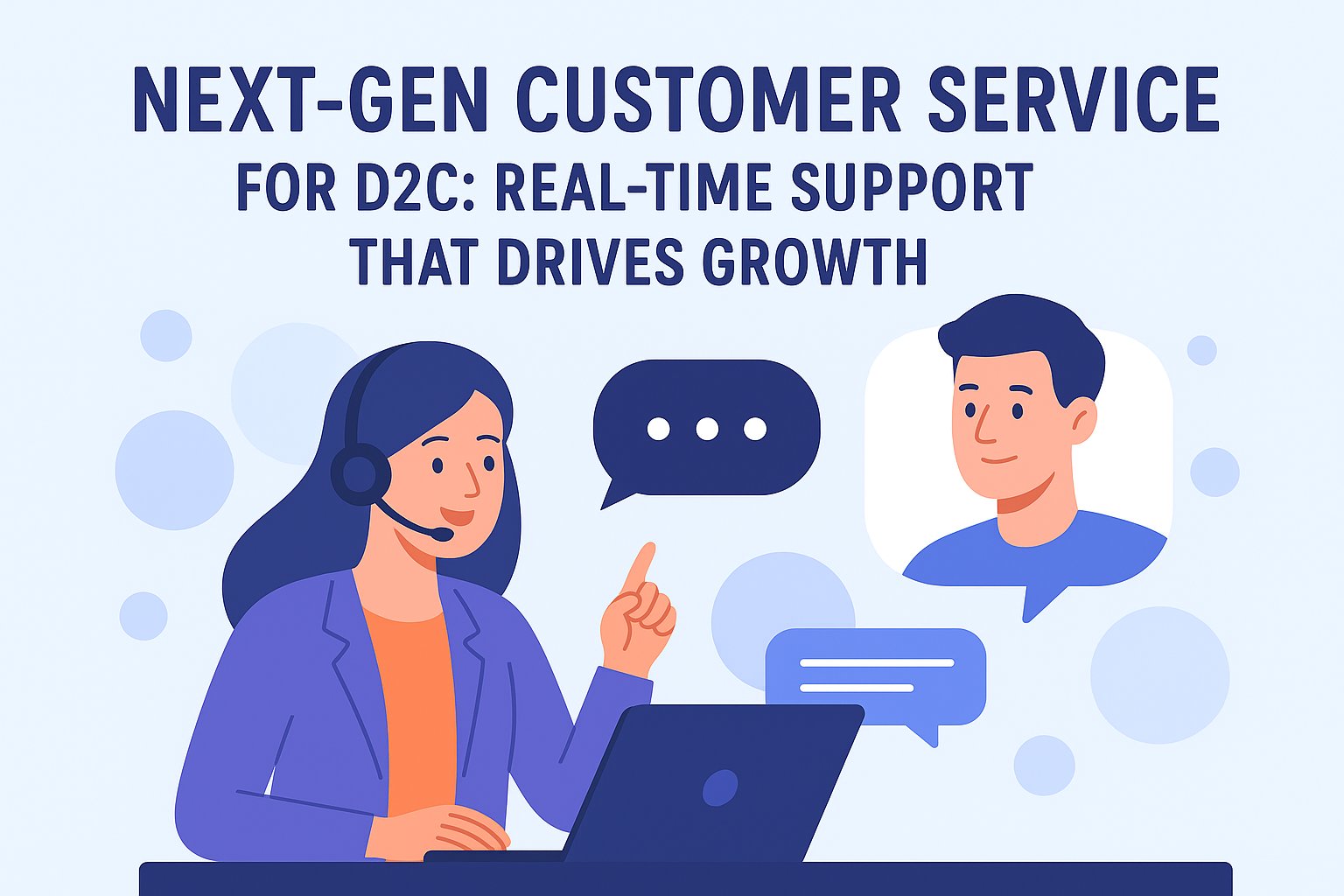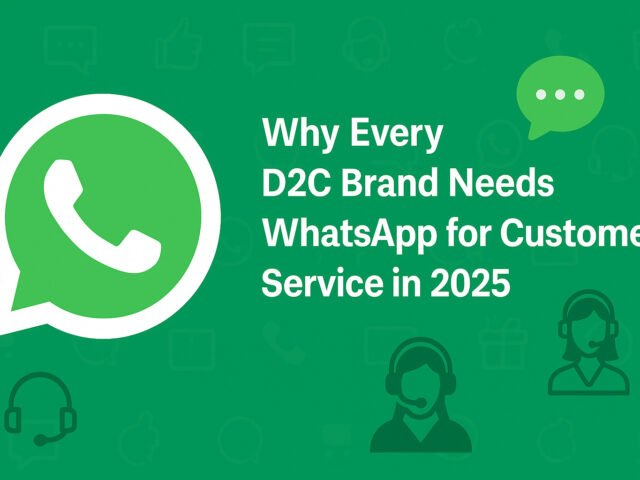Introduction
Direct-to-consumer (D2C) brands are reshaping commerce by building direct relationships with customers. But with great access comes great responsibility: today’s shoppers expect instant, personalized, and seamless support. In 2025, real-time customer service isn’t just a “nice-to-have”—it’s a growth driver that impacts loyalty, trust, and repeat purchases.
Why Real-Time Support Matters for D2C Brands
D2C customers no longer tolerate long wait times. Whether on a product page, checkout, or post-purchase stage, they expect immediate answers.
- Boosts Satisfaction: Quick resolutions keep customers happy and engaged.
- Reduces Cart Abandonment: Real-time chat during checkout can recover lost sales.
- Strengthens Loyalty: Personalized interactions make customers feel valued.
By controlling the entire customer journey, D2C brands can tailor real-time support to maximize lifetime value and ensure customers come back.
Next-Gen Real-Time Support Technologies
AI-Powered Chatbots & Virtual Assistants
Advanced tools like Tidio, LiveAgent, and Zendesk deliver 24/7 live chat with intelligent routing. Emerging systems such as SentiCore even detect customer sentiment, offering empathy-driven responses and reducing escalations.
Agentic AI & Autonomous Support
Beyond simple chatbots, agentic AI can handle complex tasks such as refunds, returns, and shipment updates dynamically, freeing human agents for high-value conversations.
Hybrid Human–AI Support Models
Industry leaders like Verizon are showing the power of hybrid systems—AI handles routine queries, while trained human agents resolve nuanced issues. This ensures efficiency without losing the human touch.
Omnichannel & Messaging Integration
From WhatsApp Business to voice assistants, real-time support across multiple touchpoints is key. D2C brands adopting unified, omnichannel experiences keep engagement consistent and frictionless.
Best Practices for Implementing Real-Time Support
- Seamless Handoffs: Ensure smooth transitions from AI to human agents.
- Leverage First-Party Data: Use customer data for personalized, contextualized service.
- Unified CRM Systems: Centralize data to deliver consistent experiences.
- AI-Assisted Training: Equip human agents with tools like “Ask Me Anything” assistants for efficiency.
💡 Pro Tip: Explore advanced solutions at The Bot Mode’s customer service for D2C to implement scalable real-time support strategies.
Real-World Use Cases & Impact
- Verizon achieved 90%+ support accuracy with an AI + human hybrid system, offering 24/7 live support.
- Serenity Wellness used SentiCore to cut escalations by 42% while increasing customer satisfaction scores by 31%.
These success stories prove that real-time service directly fuels growth and retention.
Conclusion
For D2C brands, real-time customer service is no longer optional—it’s a competitive edge. By combining AI, automation, and human empathy, brands can deliver instant, personalized, and scalable support that drives growth, loyalty, and trust.
The future belongs to brands that see customer support not as a cost center, but as a growth engine.
FAQs
Q1. What defines “real-time customer support”?
It means instantly resolving customer queries via live chat, messaging apps, or voice assistants without delay.
Q2. How can a D2C brand balance automation and personalization?
By using AI for routine tasks and human agents for complex, emotional interactions.
Q3. Which channels should D2C brands prioritize for real-time support in 2025?
WhatsApp, live chat, AI-powered assistants, and voice-enabled platforms.


















